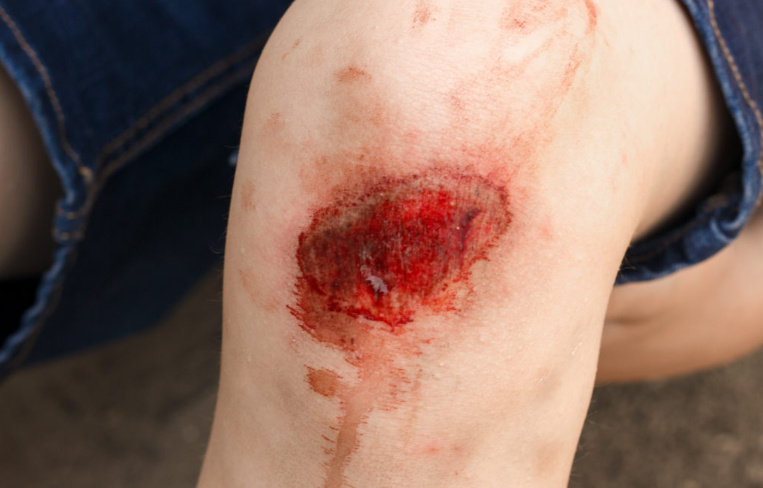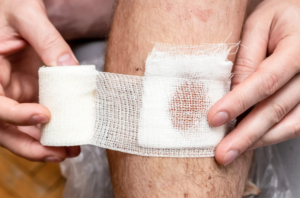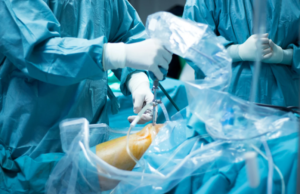Chronic or complex wounds require more than basic first aid to heal properly. A Wound Doctor offers specialized skills, cutting-edge technology, and tailored treatment plans to restore health and prevent serious complications. With the expertise of a trusted facility like Kalingap Wound Care Clinic, patients have access to advanced wound treatments that can significantly improve recovery outcomes.
Why See a Wound Doctor for Complex Wounds?
A Wound Doctor is trained to manage wounds that do not heal easily, such as diabetic foot ulcers, pressure sores, surgical wounds, traumatic injuries, and severe burns. These types of wounds are prone to infection, delayed healing, and long-term complications if not managed properly. Attempting self-treatment or delaying professional care can lead to worsening conditions, including amputations in severe cases.
At Kalingap Wound Care Clinic, every patient undergoes a comprehensive evaluation to determine the root cause of the wound, ensuring the treatment is not only effective but also tailored to the individual’s medical needs.
Advanced Treatments Provided by a Wound Doctor
Debridement Techniques
Removing dead or infected tissue is a critical step in wound healing. A Wound Doctor may use surgical, mechanical, enzymatic, or autolytic debridement methods to prepare the wound bed for healing. This process helps reduce infection risk and promotes the growth of healthy tissue.
Negative Pressure Wound Therapy (NPWT)
Also known as vacuum-assisted closure, NPWT uses controlled suction to remove excess fluid and stimulate blood flow to the wound. This treatment helps reduce swelling, prevent infection, and speed up healing. Kalingap Wound Care Clinic offers NPWT for patients with large or complex wounds that need intensive care.
Hyperbaric Oxygen Therapy (HBOT)
HBOT involves breathing pure oxygen in a pressurized chamber, increasing oxygen levels in the blood and delivering more oxygen to the wound. This boosts cell regeneration and fights infection, making it particularly effective for diabetic foot ulcers and radiation injuries.
Bioengineered Skin Substitutes and Grafts
When wounds fail to close on their own, a Wound Doctor may recommend skin grafting or the use of bioengineered skin substitutes. These treatments provide a protective covering and stimulate tissue growth, especially in deep or chronic wounds.
Advanced Dressings and Topical Treatments
Modern wound dressings go beyond simple bandages. A Wound Doctor may use hydrocolloids, alginates, foam dressings, and antimicrobial products that maintain optimal moisture levels, control infection, and promote comfort.
Growth Factor and Stem Cell Therapy
Emerging regenerative medicine techniques, such as growth factor applications and stem cell therapy, are designed to accelerate the healing process by stimulating new cell formation. This is particularly valuable for patients with stubborn wounds that have not responded to conventional treatments.
Benefits of Advanced Wound Care
Working with a Wound Doctor offers numerous advantages:
- Faster healing times and reduced treatment duration
- Lower risk of infection and related complications
- Minimized scarring for better cosmetic outcomes
- Prevention of severe conditions, including amputations
- Improved comfort and quality of life throughout recovery
Patients at Kalingap Wound Care Clinic benefit from a holistic approach that combines advanced medical care with patient education, empowering them to take an active role in their healing journey.
What to Expect During an Appointment with a Wound Doctor
A visit to a Wound Doctor typically begins with a detailed wound assessment, including measurements, photographs, and possibly diagnostic tests to evaluate blood flow or detect infection. The Wound Doctor will then develop a personalized treatment plan, selecting from advanced therapies suited to the wound’s type, location, and severity. Follow-up visits ensure the wound is healing as expected and adjustments can be made promptly if needed.
How to Find the Right Wound Doctor
When choosing a Wound Doctor, it’s important to look for:
- Board certification in wound management
- Experience treating wounds similar to yours
- Access to advanced treatment technologies
- A compassionate, patient-focused approach
Kalingap Wound Care Clinic meets all these criteria, making it the ideal choice for anyone seeking expert wound care in a supportive environment.
Takeaway
Advanced treatments from a Wound Doctor can mean the difference between prolonged suffering and a swift, successful recovery. From debridement and NPWT to regenerative therapies and skin grafting, the right care can save limbs, restore mobility, and enhance quality of life. Kalingap Wound Care Clinic stands out as the best provider of these services, offering both expertise and state-of-the-art solutions for even the most challenging wounds.
FAQs
What is the most effective wound healing treatment?
The most effective treatment depends on the wound’s type and severity. A Wound Doctor may recommend NPWT, HBOT, or advanced dressings based on individual needs.
When should you see a Wound Doctor?
You should seek a Wound Doctor’s care if your wound shows no signs of healing after a few weeks, has signs of infection, or is related to conditions like diabetes or poor circulation.
Does hyperbaric oxygen therapy work for diabetic ulcers?
Yes, HBOT has proven effective in improving healing rates for diabetic foot ulcers by increasing oxygen supply to damaged tissues.
Is negative pressure wound therapy painful?
Most patients tolerate NPWT well, though some may experience mild discomfort, which can be managed with pain relief strategies.
Can advanced wound care prevent amputation?
Absolutely. Timely intervention by a Wound Doctor can often prevent infections and complications that might otherwise lead to amputation.




